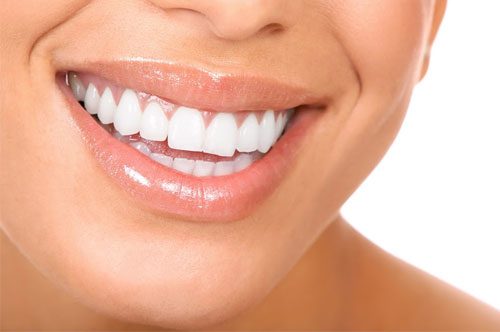You’ve probably hear the old saying that an ounce of prevention is worth a pound of cure. That holds true for tooth and gum problems. Brushing and flossing are the best ways to help prevent dental problems. Dr. James LoCascio at Highland Advanced Dental Care in Highland, MI is pleased to present these five tips to help you have a healthy mouth.
Tip #1: Choose Your Tool Wisely
Your tooth enamel is the single hardest substance in the human body. That doesn’t mean it can’t be harmed, though. Brushing too hard, or brushing with a hard-bristle toothbrush, can slowly wear away enamel over time. Stiff bristles or excess pressure can also irritate the gums. In some cases, brushing too hard can cause your gums to recede which can lead to a lot of problems down the road.
For almost everyone, a soft-bristle, small-headed toothbrush is best. The smaller head allows you to reach all the tiny nooks and crannies in the mouth so you can remove as much plaque as possible. Dental plaque is the leading cause of tooth loss. Staying ahead of plaque is like an insurance policy for your teeth and gives you a healthy mouth.
Tip #2: Don’t Forget The Floss
Dental floss loosens and removes plaque from between the teeth where your toothbrush may not reach. There’s some debate about whether waxed or unwaxed floss is better, but it largely comes down to your comfort level. Flossing with either type is far better than not flossing at all.
It’s amazing how many people will thoroughly brush their teeth but can’t be bothered to take another 45 seconds or so to floss. Make time; it’s one of the best investments you can make in a healthy mouth.
Tip #3: Rinse, and Rinse Again
Plaque is a thin, sticky film brushing and flossing will loosen plaque, but there’s no guarantee that all plaque will leave with your toothpaste. Give your mouth a thorough rinsing after you finish brushing and flossing to make sure that as much plaque as possible doesn’t hang around.
Speaking of rinsing, antibacterial mouthwashes are effective in helping some people reduce plaque formation. There are a host of different types of mouthwashes available. Look for the ADA Seal of Approval to ensure you’re getting one that has been shown to be effective. If you’re not sure which is best for you, Dr. James LoCascio of Highland Advanced Dental Group in Highland Township, MI will advise you.
Tip #4: Regular Does It
Plaque begins to form on the gum line around the teeth within 24 hours after being removed. That’s why dentists everywhere urge people to brush twice a day and to floss once. While leaving 12 hours between brushings is probably ideal, it’s not necessary. The idea is to minimize the amount of time that plaques spends in contact with the teeth and gums and prevent it from forming again
Tip #5: Take On A Partner
Mouths are cramped places with lot of tiny nooks and crannies. Even the most thorough brushing and flossing can give plaque a foothold. That’s why regular dental cleanings and examinations are so important to your mouth health.
Schedule an appointment for a dental cleaning and examination with Highland Advanced Dental Care in Highland Township, MI by calling 248-329-3552.
Visit Highland Advanced Dental Care
We can see you as soon as tomorrow!





